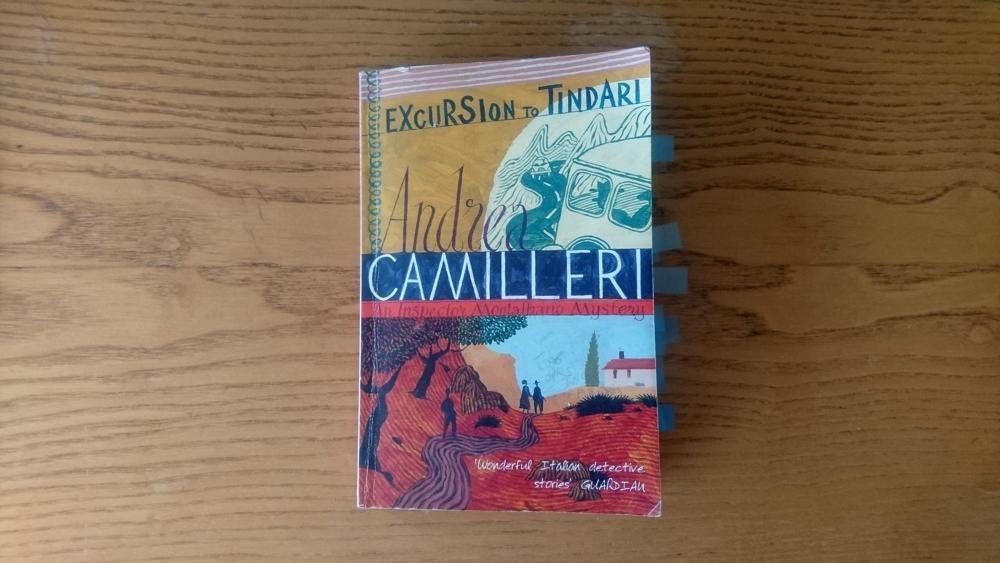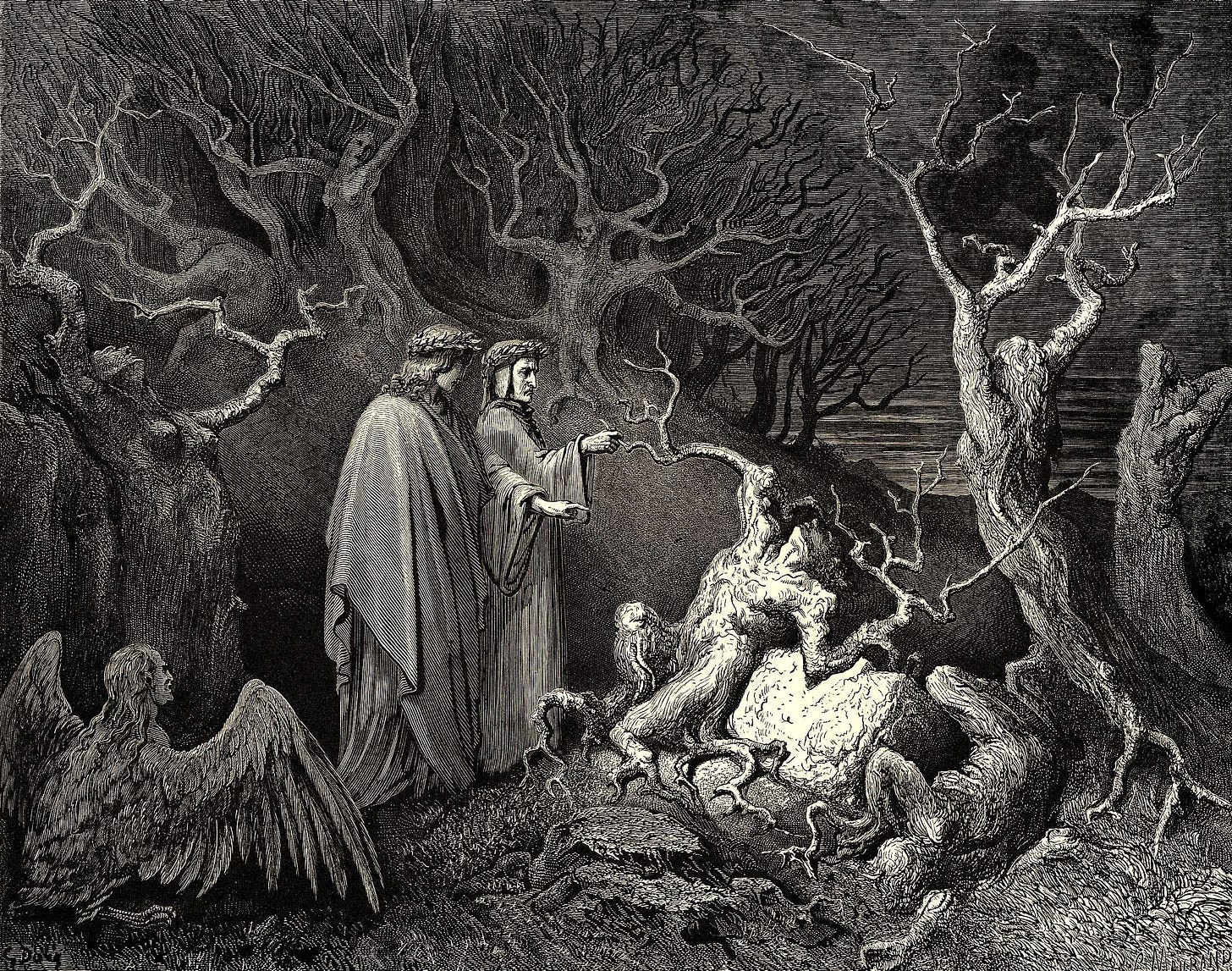FIRST LINE
He realized he was awake, as his mind was functioning logically and not following the absurd labyrinths of dream.

FROM THE BLURB
A young Don Juan is found murdered in front of his apartment building early one morning, and an elderly couple are reported missing after an excursion to the ancient site of Tindari - two seemingly unrelated cases for Inspector Montalbano to solve amid the daily complications of life at Vigàta police headquarters.
FIVE EXCERPTS
#1: An olive tree
It looked like a fake tree, a stage prop, something out of the imagination of Gustave Doré, perhaps an illustration for Dante’s Inferno. The lowest branches dragged and twisted along the ground, unable, try as they might, to hoist themselves skyward, and thus at a certain point in their progress they reconsidered their effort and decided to turn back towards the trunk, creating a kind of elbow-like bend or, in some cases, an out-and-out knot. Shortly thereafter, however, they changed their minds and turned around again, as if frightened at the sight of the powerful though pocked, burnt, time-wrinkled trunk. And in turning around, the branches took a different direction from the one before. They looked just like vipers, pythons, boas and anacondas that had suddenly metamorphosed into olive branches. And they seemed to despair, forever damned by the sorcery that had frozen them - ‘crystallized’ them, the poet Montale might have said - in an eternity of tragic, impossible flight.

Above: An illustration by Gustave Doré for Dante’s Inferno. [Source: WikiArt]
#2: Three Italian proverbs
But, except for filling his belly, the inspector had come up empty again, as far as the investigation was concerned. He had made, as the Sicilians say, another hole in the water.
‘A night wasted, and it’s a girl,’ commented Galluzzo, quoting the proverbial saying - Nottata persa e figlia fìmmina - of the husband who has spent a whole night beside his wife in labour, only to see her give birth to a baby girl instead of that much-desired son.
Il letto è una gran cosa / Se non si dorme s’arriposa.
Of all things the bed is best / If you can’t sleep you still can rest.
#3: Certificate of living existence
They’d saved everything… There was even a copy of the ‘certificate of living existence’, that nadir of bureaucratic imbecility. What might Gogol, with his dead souls, have concocted from such a document?
Translator’s Note: ‘certificate of living existence’ - Certificato di esistenza in vita, in Italian. This bureaucratic oddity was created, among other reasons, to prevent pensions from being paid out to people who are dead.
#4: Two ways to eat fish
The inspector had two ways to eat fish. The first, which he used reluctantly and only when he had little time, was to bone it, gather all the edible parts on his plate, and then set about eating them. The second, which gave him far more satisfaction, consisted of earning every single bite, removing the bones as he went along. It took longer, true, but that additional bit of time served to smooth the way, so to speak. As one was cleaning each already dressed bite, the brain would pre-activate the senses of taste and smell so that one seemed to eat the fish twice.
#5: Caponata
Caponata! Fragrant, colourful, abundant, it filled an entire soup dish, enough for at least four people. It had been months since Adelina, his housekeeper, last made it for him. The bread, in its plastic bag, was fresh, bought that morning. The notes of the triumphal march of Aïda came spontaneously, naturally, to his lips.
Translator’s Note: Caponata - A zesty traditional southern-Italian dish, often served as an appetizer or side dish, made up of sautéed aubergine, tomato, green pepper, garlic, onion, celery, black olives, vinegar, olive oil and anchovies. In this instance, Montalbano eats a large helping of caponata as his main course.
![Caponata Siciliana (Sicilian Eggplant Antipasto) [Vegan, Gluten-Free] Caponata Siciliana (Sicilian Eggplant Antipasto) [Vegan, Gluten-Free]](https://substackcdn.com/image/fetch/$s_!dQoU!,w_1456,c_limit,f_auto,q_auto:good,fl_progressive:steep/https%3A%2F%2Fbucketeer-e05bbc84-baa3-437e-9518-adb32be77984.s3.amazonaws.com%2Fpublic%2Fimages%2Fb3af7987-15dc-4b87-b801-0b89f31dcb71_1600x1004.jpeg)
Above: Caponata Siciliana [Source and recipe: One Green Planet]
LAST LINE
If Livia stayed a few days, an excursion to Tindari might not be a bad idea.
END MATTER
Excursion to Tindari was borrowed from the family (not The Family).
303 pages, ~52,000 words
Read: 19 December to 25 December 2019 (7 days)


